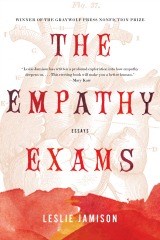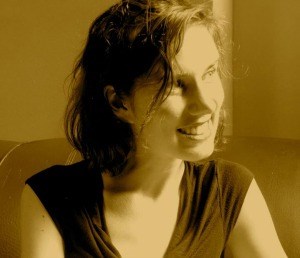MANCHESTER, N.H., March 27, 2015 (GLOBE NEWSWIRE) -- Last week finalists were announced for the 2015 PEN Literary Awards. "For some writers," said Suzanne Nossel, executive director of PEN American Center, "being recognized on PEN's longlist can be a catalytic event, sparking attention and awakening audiences to a new and important voice."
For other writers on that list—Leslie Jamison, for example, who teaches in Southern New Hampshire University's low-residency MFA in Fiction and Nonfiction program—that catalytic event has already occurred. Her first book was a critical success, but by no means a bestseller. "The Gin Closet," a novel, was a finalist for the Los Angeles Times' First Fiction Prize in 2010.
But something extraordinary happened with her second, a collection of essays. First the manuscript for "The Empathy Exams" won the Graywolf Nonfiction Prize in 2012—which meant publication in 2014 by that small independent publisher.
At the same time essays from the manuscript began turning up in the pages of Harper's, The Believer, the Oxford American, and A Public Space. These were dazzling, free-wheeling pieces that were something between journalism and autobiography. Some highlighted Jamison's experiences as a medical actor, for example, or a mugging victim in Nicaragua. In others—an investigation into the phenomenon of Morgellon's disease, say—the author assumes a more detached perspective, but is present nonetheless as an involved, individualized first-person reporter. All take an investigative approach to their central theme of pain and its perception.
"The thing that I love about the essay as a literary form is that it's so capacious," said Jamison, who is at the forefront of a new generation of essayists—including such as Charles D'Ambrosio and Meghan Daum—who have revitalized the form not so much by abandoning the confessional stance that has dominated the essay for decades, but by moving beyond and outside that stance, and so restoring the form's capaciousness.
With that, the publication of "The Empathy Exams" in April, 2014, became a literary event. This collection of essays, from a small press and by a heretofore unknown writer, debuted at #11 on the New York Times bestseller list, and then moved rapidly through successive printings.
The critics were similarly enthused. "Her insights are often piercing and poetic," said the New Yorker. "It's hard to imagine a stronger, more thoughtful voice emerging this year," said the New York Times. "A beautiful and punishing book," said Slate. "A soaring performance on the humanizing effects of empathy," said National Public Radio.
The Boston Globe summed it all up: "We're in a golden age of the essay . . . and in 'The Empathy Exams' Leslie Jamison has announced herself as its rising star."
No one was more astonished than Jamison herself by the splash she had made—and then by the breadth of response from her readers: their comments at readings, their letters in her mailbox. Ironically, it was the essays that were the most autobiographical—i.e., the most "confessional"—that elicited the strongest response.
"They coaxed chorus like a brushfire," Jamison wrote in a 2014 essay in The Guardian. "Someone tweeted about my essays: 'After reading this book, I want to write about my hidden pain until my fingers bleed, and then I want to write about my bleeding fingers.'"
In so candidly sharing her own experiences with pain, Jamison had offered balm to that of others—thousands of others. It was both gratifying and consuming.
"There were too many of them," she continued in that essay. "I couldn't respond to them all. At a certain point I stopped responding to any of them. An abiding sense of guilt and hypocrisy began to fester . . . I was empathetic in the abstract and stingy everywhere else."
Reflecting now on the character of this "catalytic event" in her life, Jamison said, "It's a curious part of being a writer—a vocation that naturally tends towards an inward life—that the part of ushering a book into the world means becoming quite outward."
Then that part of engaging with the public, she adds, "feels like a rich continuation of the process of the book, but also something of an ouro boros, the serpent eating its own tail, or a Mobius strip, with no clear delineation between interior and exterior."
That was just the serpent that drove J.D. Salinger into his own interior fortress. Instead Jamison welcomes this new honor from the PEN American Center, which has also short-listed "Loitering," a collection by her teacher and mentor, Charles D'Ambrosio. And she works on the first of two new books of nonfiction promised to Little, Brown.
Jamison has struck her own sort of balance between the two lives that writers lead, and if "The Empathy Exams" is confessional, it is so on the wings of empathy, and that inner commitment to the outward.
"In the end, it's not about the stars in my inbox, reminding me to respond, or even my guilt about those stars," she wrote in The Guardian. "It's about the people who looked me in the eye—in Ann Arbor, San Francisco, Kalamazoo—and said: this gave me permission to talk about what hurt. To them, I say: thank you for making my confession larger than itself."
Photos accompanying this release are available at:

